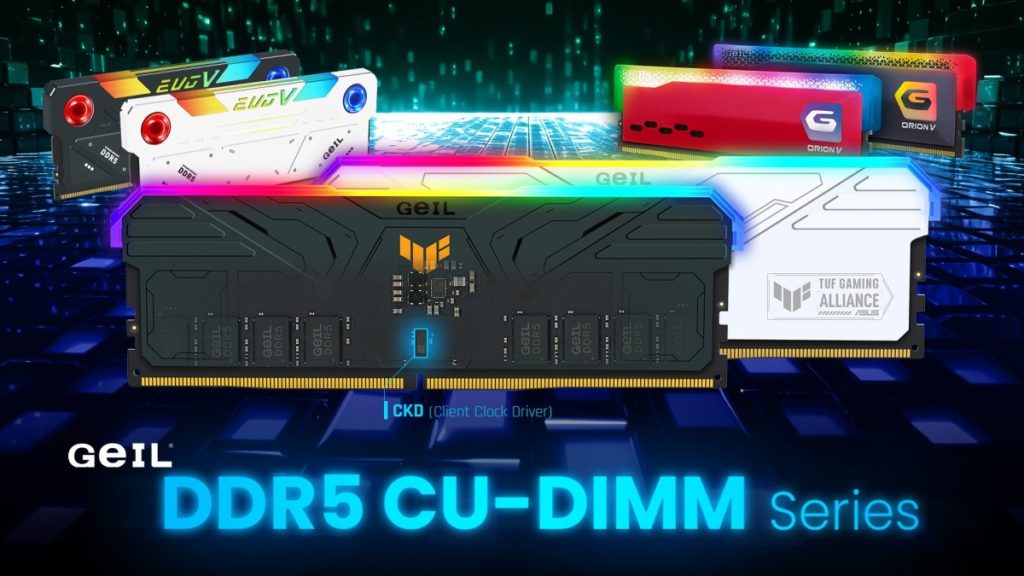
Those looking to get the most out of Intel’s newest Core Ultra 200 series processors have something to look forward to as GeIL announces its forthcoming DDR5 memory kits. Even as GeIL announces its expanded memory lineup, CUDIMM is still somewhat in its infancy when it comes to adoption and pricing. That being said, a system featuring a Core Ultra 9 285K while not expressly aimed at gaming but instead towards productivity tasks, could potentially benefit from a DDR5 memory kit rated for up to 9,200 MT/s or perhaps 8,800 MT/s. GeIL has not provided pricing or availability for its upcoming DDR5 CUDIMM and UDIMM models but has said they should launch sometime in the coming weeks.
Per Press Release:
“Golden Emperor International Ltd. – one of the world’s leading PC components and peripheral manufacturers, announced today that its full range of DDR5 memory products, from 6400MTs to 8000MTs, will now be available in both CUDIMM and UDIMM options to meet diverse consumer needs. For high-end overclocking applications, GeIL is introducing two new high-speed specifications, 8800MTs and 9200MTs, offering overclocking enthusiasts an optimal choice for top performance. Both CUDIMM and UDIMM options ensure excellent compatibility and full support for Intel’s latest Core Ultra Processors (Series 2).”
CUDIMM Details:
Clocked Unbuffered Dual Inline Memory Module (CUDIMM) is a new DDR5 standard that includes a Clock Driver (CKD) which per GeIL, “regenerates the clock signal directly on the DIMM,” and “reduces signal degradation and noise, resulting in enhanced memory stability and performance, with stable operation at speeds of 6400MTs and even reaching up to 7200MTs.”
JEDEC specified the new standard in 2023 and PC memory manufacturers have been steadily announcing their new kits since October. CUDIMM and UDIMM memory use the same socket design but motherboard manufacturers and chipset providers will need to provide appropriate BIOS update(s) for disabling the clock driver when CUDIMM modules are installed.
Per Kingston “What is a CUDIMM/CSODIMM Document?”:
“To prevent compatibility issues, the chipset and motherboard manufacturers will roll out BIOS updates to legacy motherboards which disable the clock driver if a CUDIMM/CSODIMM is installed.”
